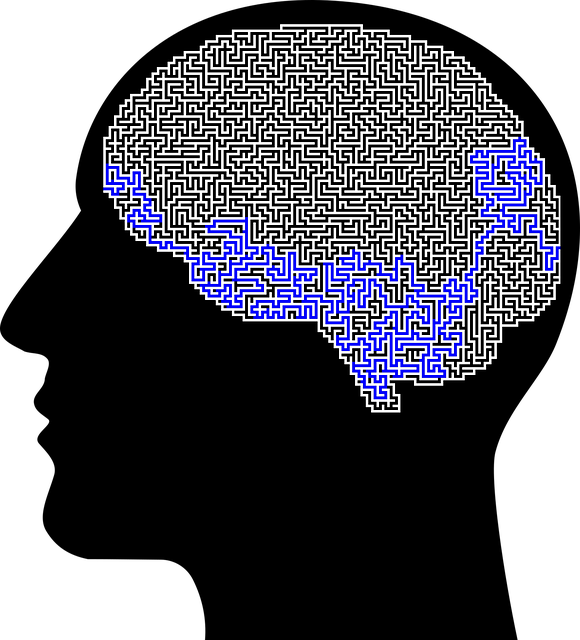Depression prevention in Highlands Ranch focuses on understanding burnout triggers, particularly from chronic stress. Highlands Ranch Obsessive Compulsive Disorder (OCD) therapy is an effective strategy to manage stress, challenge negative thoughts, and reduce the risk of depression. This approach includes cognitive-behavioral techniques, self-care practices, social connections, and mindfulness. Lifestyle changes like exercise and balanced nutrition, combined with professional guidance from mental health experts, offer a proactive mental wellness strategy. OCD therapy, tailored with cultural sensitivity, builds resilience and addresses individual needs. Fostering social connections through community activities and support groups is vital, alongside managing stress through specialized trauma services and self-care practices.
Depression is a prevalent yet complex condition, but with proactive strategies, prevention is achievable. This article explores comprehensive approaches to safeguard your mental health, offering insights into understanding and managing depression. From lifestyle modifications for improved well-being to the transformative power of therapy, we delve into effective ways to build resilience. Discover the significance of social connections and stress management techniques tailored to your needs, providing a roadmap to enhance your mental fortitude, especially in navigating challenges like Highlands Ranch Obsessive Compulsive Disorder Therapy.
- Understanding Depression and its Triggers
- Lifestyle Changes for Improved Mental Health
- The Role of Therapy in Preventing Relapse
- Building a Support Network: Connections Matter
- Identifying and Managing Stressors Effectively
Understanding Depression and its Triggers

Depression is a complex mental health disorder that can significantly impact an individual’s daily life and overall well-being. Understanding its triggers is a crucial step in prevention, especially for those who may be at higher risk. Burnout, a state of emotional, physical, and mental exhaustion, often contributes to depressive episodes. It arises from prolonged exposure to stressful situations without adequate coping mechanisms or inner strength development.
Highlands Ranch obsessive-compulsive disorder (OCD) therapy can offer valuable insights into managing stress and preventing burnout. OCD therapy focuses on identifying and modifying unhelpful thought patterns and behaviors, teaching effective communication strategies, and promoting self-care practices. By addressing these aspects, individuals can build resilience, enhance their coping abilities, and reduce the likelihood of depression onset or recurrence.
Lifestyle Changes for Improved Mental Health

In the pursuit of depression prevention, lifestyle changes play a pivotal role in cultivating mental resilience. Incorporating regular physical activity, balanced nutrition, and adequate sleep into daily routines can significantly impact mood regulation. The benefits of exercise, for instance, extend beyond physical health; it stimulates the release of endorphins, our body’s natural mood elevators, offering a powerful countermeasure against depressive symptoms. Similarly, mental health education programs design tailored to promote self-care and coping strategies can empower individuals to take charge of their well-being.
Highlands Ranch obsessive-compulsive disorder (OCD) therapy has proven effective in addressing underlying contributing factors to depression. By learning cognitive-behavioral techniques, individuals gain valuable tools to challenge negative thought patterns and develop healthier coping mechanisms. Additionally, engaging in hobbies, cultivating social connections, and practicing mindfulness can foster a sense of purpose and belonging, acting as protective factors against depressive episodes. Incorporating these lifestyle shifts into one’s routine may serve as a proactive approach to mental wellness, complementing evidence-based treatments such as therapy and medication when needed, especially with the guidance of mental health professionals.
The Role of Therapy in Preventing Relapse

Depression prevention isn’t just about managing symptoms; it’s a proactive approach to long-term mental well-being. One of the most powerful tools in a person’s arsenal is therapy, which can play a pivotal role in preventing relapse. Highlands Ranch Obsessive Compulsive Disorder (OCD) Therapy, for instance, has been shown to be highly effective in treating depression and minimizing its return.
Through structured conversations and proven techniques, therapists help individuals identify triggers, develop coping mechanisms, and refine communication strategies. This doesn’t just address symptoms; it equips clients with self-care practices tailored to their unique needs. Additionally, cultural sensitivity in mental healthcare practice is crucial, ensuring that therapy respects and incorporates the individual’s background and values, enhancing its effectiveness and fostering a deeper sense of understanding and engagement.
Building a Support Network: Connections Matter

Building a strong support network is an essential aspect of depression prevention, often overshadowed by individual therapeutic efforts. In Highlands Ranch, obsessive-compulsive disorder (OCD) therapy has proven effective in managing mental health challenges, but fostering connections goes hand in hand with treatment. Social isolation can exacerbate symptoms and make coping more difficult, so actively seeking support from friends, family, or even professional networks is vital for long-term well-being.
Engaging in community activities or joining support groups can facilitate meaningful connections and provide a sense of belonging. The Mental Health Policy Analysis and Advocacy community emphasizes the power of collective action and support systems. Additionally, Mood Management and Stress Management Workshops Organization offer valuable resources to enhance interpersonal skills, improve communication, and build resilience, all of which contribute to an individual’s ability to navigate life’s challenges more effectively.
Identifying and Managing Stressors Effectively

Managing stress is a vital component in depression prevention. High levels of chronic stress can trigger depressive episodes, especially when left unaddressed. Individuals living in Highlands Ranch with Obsessive Compulsive Disorder (OCD) may be particularly susceptible, as OCD symptoms can exacerbate stress and anxiety. Seeking professional help from trauma support services specializing in OCD therapy can provide valuable tools for managing these stressors effectively.
Through techniques like cognitive behavioral therapy (CBT), individuals learn to identify triggers, develop coping mechanisms, and practice emotional regulation strategies tailored to their unique needs. In addition to therapy, engaging in regular self-care practices such as exercise, mindfulness meditation, and connecting with supportive communities can significantly contribute to maintaining mental wellness. Exploring resources like the Mental Wellness Podcast Series Production offers accessible platforms for learning more about stress management and building a resilient foundation for overall emotional well-being.
In addressing depression prevention strategies, understanding the root causes and implementing holistic approaches are key. Lifestyle adjustments, such as regular exercise and a balanced diet, play a significant role in mental well-being. Therapy acts as a powerful tool to prevent relapse, offering valuable coping mechanisms and support. Building a strong support network and learning to manage stressors effectively can further enhance resilience against depression. For those in Highlands Ranch seeking additional help, professional services like obsessive-compulsive disorder (OCD) therapy are accessible, providing tailored strategies for improved mental health and overall life satisfaction.














